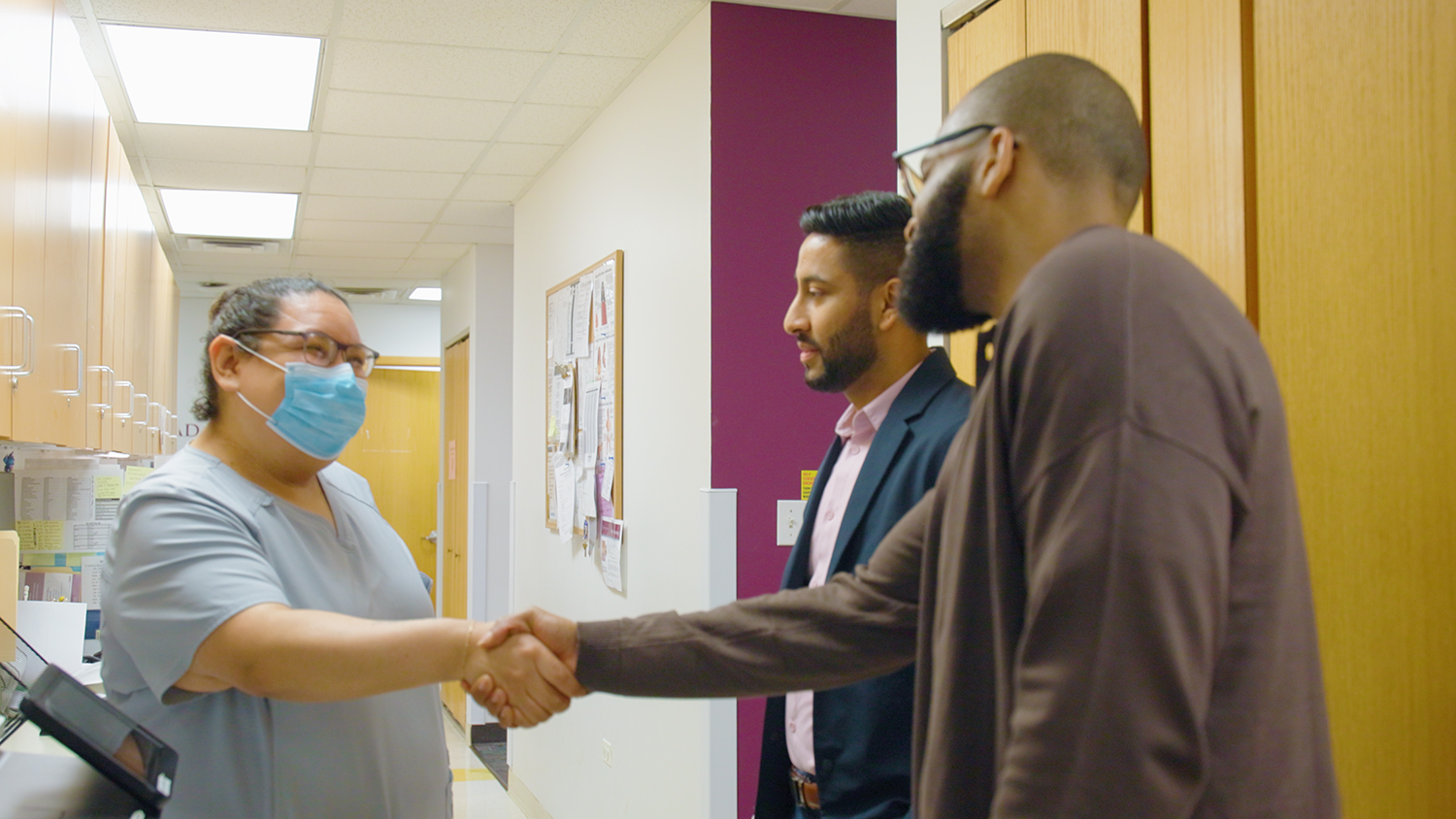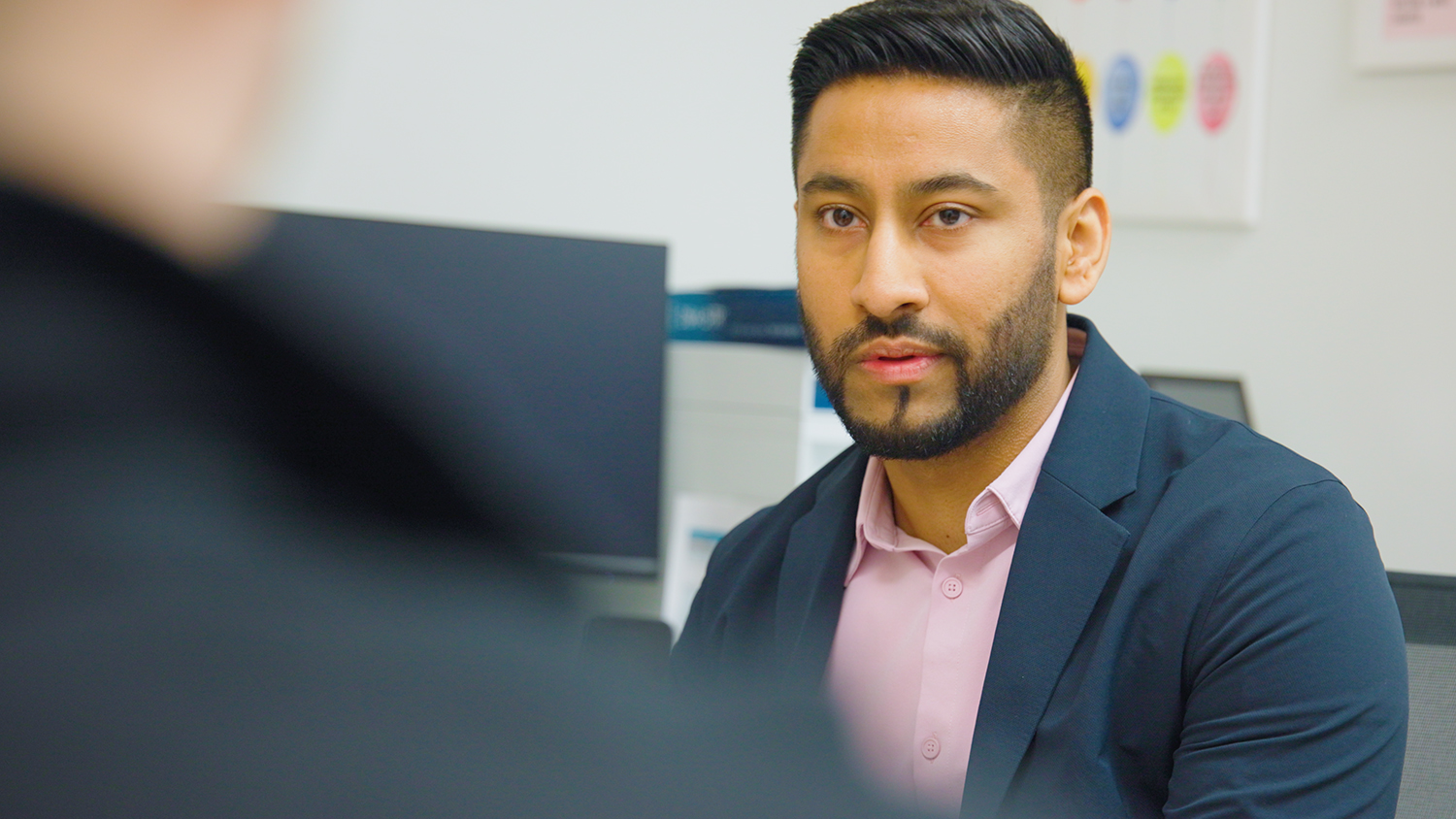
Before last fall, children and teenagers on Chicago's west side who needed mental health care often had to wait months for an appointment because there were few providers available.
Since Saint Anthony Hospital launched its SPARK program, which stands for Supportive Psychiatry and Resilience for Kids, people under the age of 18 can get mental health care in a matter of days.
"Being able to shorten those wait times for those children was a crucial step that we took," said Dr. Anoop Takher, medical director of child psychiatry at Saint Anthony and of the SPARK program.
He said over the last several months, more and more patients have come in for speech therapy, occupational therapy, social worker services, psychiatric assessments and medication management.
"It's been a true blessing," he said.
'More touchpoints'
The SPARK program operates from Saint Anthony's Archer Clinic, which houses primary care, family medicine and other services. Patients who visit the clinic can easily be referred to a SPARK therapist. SPARK offers in-person and virtual appointments and accepts Medicaid. Sixty percent of Saint Anthony's patient base relies on Medicaid.
"Being able to have myself and the other providers under the same roof with a therapist just makes things so much easier," Takher said. "If a patient is connecting with a therapist on a weekly basis, they have many more touchpoints with them. And for us as providers ... we're able to then gather that information from the therapist and have a true, clear picture of what a patient is struggling with, rather than what we can see within 30 minutes or 60 minutes. Being able to have that collaboration and interdisciplinary approach to treating patients gives them a higher level of care."
The providers and staff are working together toward the same mission of helping others, he said. "It's such a team-based approach that it just makes it a fun environment to work in," he said.
Diverse families and issues
The neighborhood Saint Anthony serves is diverse and has a large Hispanic population. The SPARK program's therapist speaks Spanish as does its physician assistant.
Takher said young patients come in with many conditions, such as anxiety, depression and post-traumatic stress disorder.
Some children and families are anxious because of immigration issues, and through the SPARK program, Saint Anthony staff is able to connect with families to discuss that stress, Takher said. "It's allowed us to help us understand what they are going through as a family and how those worries are realistic, or if they are age-appropriate," he said. "And it allows us to treat them as a family, as a whole."

He spoke about a 15-year-old boy with obsessive-compulsive disorder who washed his hands numerous times each day and went through "bottles and bottles" of hand sanitizer. "Being able to see him, treat him from a medical perspective and a therapy perspective, and see the impact and see the improvement really just reinforces the sense of the work that we do and how we can make an impact in this community," Takher said.
Every patient has a different measure of success, he said. For a psychotic patient, success might be staying out of the hospital for months and for a depressed or anxious patient it might be improvement in daily living and performance in school.
"That bar is a little bit different for every patient, but being able to provide that individualistic approach, set those goals with the patient and provide that care and help them achieve those goals is the mission," he said.
To get the word out about SPARK, staffers have attended resource fairs at schools and recently partnered with the nearby nonprofit Carole Robertson Center for Learning. Instructors from Carole Robertson contact parents of students who they believe need mental health support and refer them to SPARK. Representatives from SPARK and Carole Robertson then come up with an action plan.
In a video about the partnership for the CHA series "This is Catholic Health Care," David Walker, senior director of mental health at the learning center, said children his organization serves had been waiting six to eight months to get services critical to preparing them for school. Among the assistance he said the children need is help in learning to regulate emotions, problem solve and deal with frustrations.
"So to be able to go to a program like SPARK that does not have a waiting list, that accepts Medicaid, that removes barriers for children has been vital for the success of those children and thinking about their kindergarten readiness," Walker said.
Takher said families are also spreading the word about SPARK.
"We've seen tremendous growth over the last few months, and I would hope to continue to see that over the next couple months," he said. "Being able to put this SPARK clinic through Saint Anthony, in this community, and see the impact it's creating and see the positive response from the families has just been great. And I hope we can continue to make that impact."
